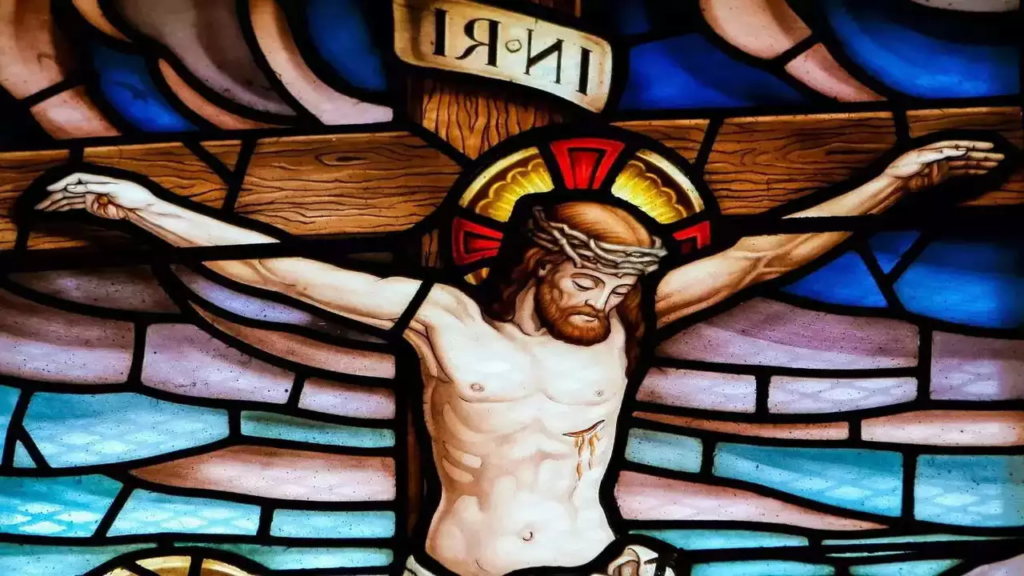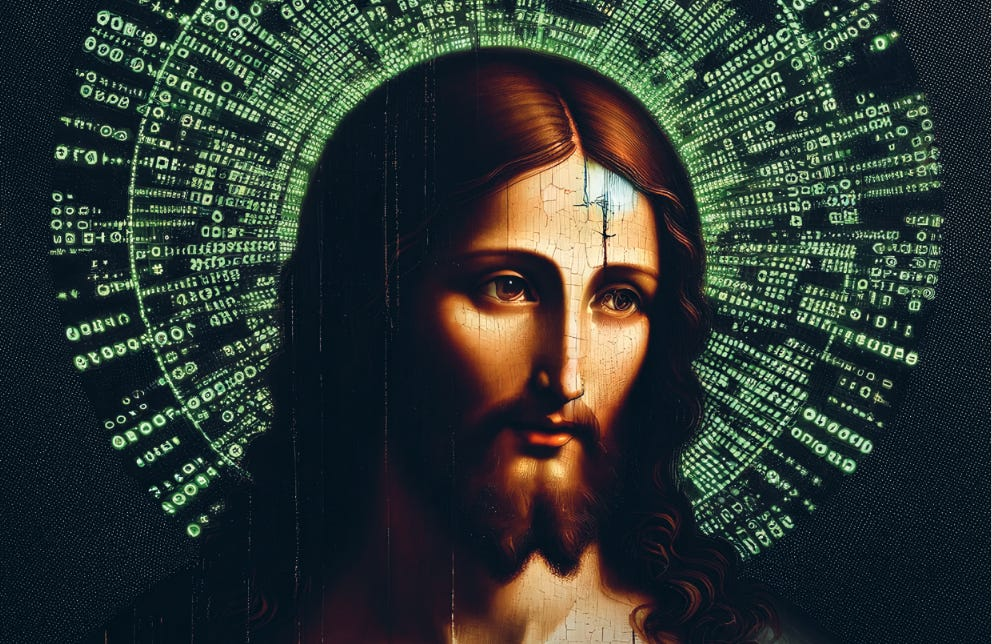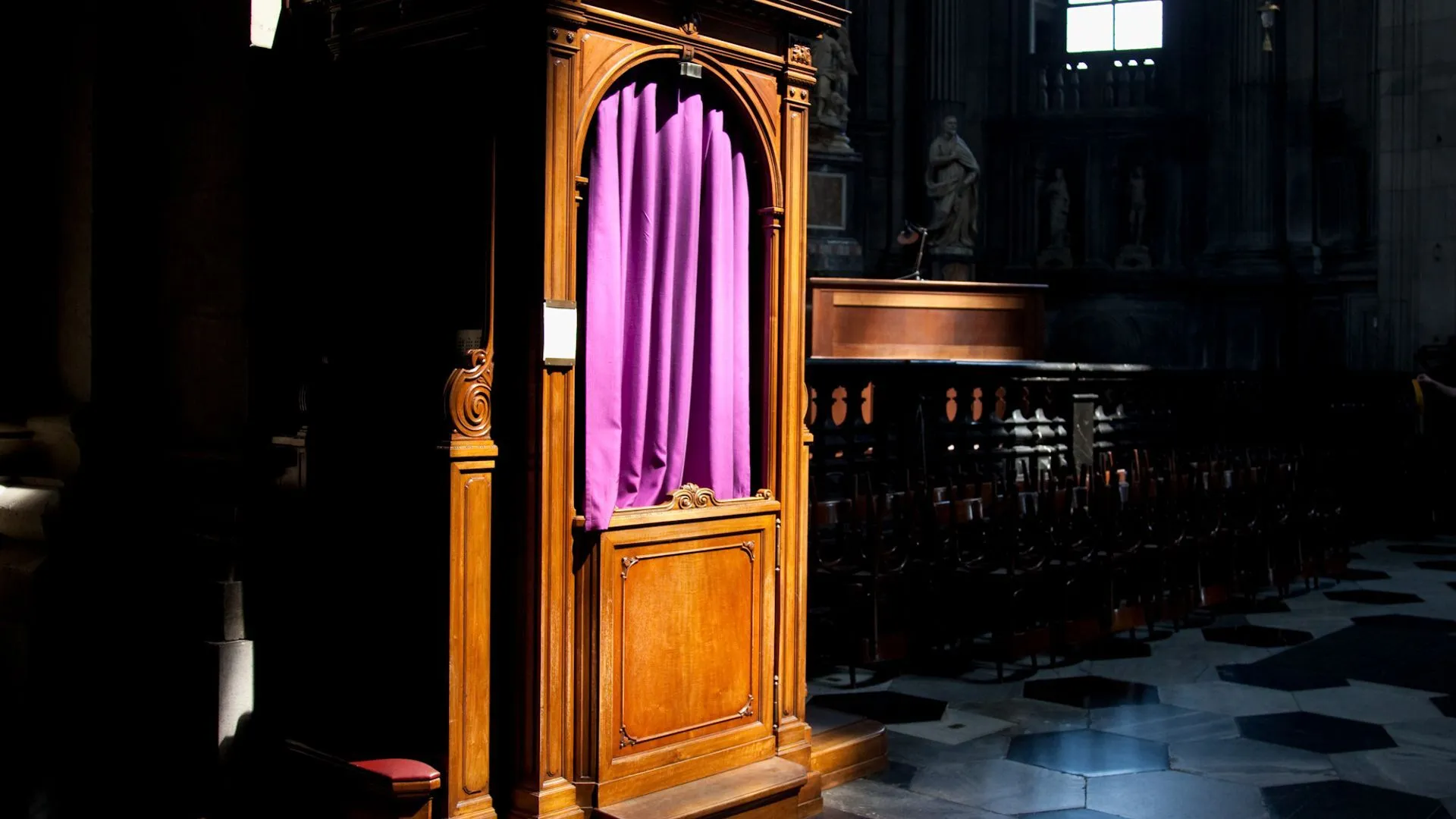Technology and theology merge in a groundbreaking project at St. Peter’s Church in Lucerne, Switzerland, where AI-powered Jesus is hearing confessions and offering advice.
In the serene and picturesque town of Lucerne, Switzerland, a groundbreaking project has been unveiled at the historic St. Peter’s Church—a fusion of technology and spirituality that is sparking both awe and controversy.
Enter the world of AI-powered Jesus, a holographic representation of Jesus Christ equipped with artificial intelligence to hear confessions and provide guidance.
As curious visitors step into the confessional booth, they are met not by a priest, but by a digital Jesus who listens, responds, and offers advice in over 100 languages. This unexpected marriage of faith and technology raises questions about the future of religion, the role of machines in spiritual practices, and the ethical dilemmas surrounding such innovations.
The Concept of “Deus in Machina” – God in a Machine
The project, which has been named “Deus in Machina” (God in a Machine), aims to bridge the gap between centuries-old religious traditions and the ever-evolving world of artificial intelligence. The initiative is part of an art project that explores how AI can play a role in modern religious experiences.
At the heart of the installation is an AI-driven hologram of Jesus Christ, designed to engage worshippers in the confessional booth. This project invites visitors to sit before a screen, speak their concerns, and receive responses from an artificial intelligence algorithm that emulates the wisdom and compassion associated with the figure of Jesus.
One of the most remarkable aspects of this installation is the advanced capabilities of AI Jesus. Not only does it respond thoughtfully to confessions, but it can do so in over 100 languages, offering accessibility to people from all over the world.
Read : ‘Empire Of Light’ Painting Sells For $121 Million!
Whether you’re a local Swiss or a traveler from a far-off country, AI Jesus is equipped to provide advice in your language, making it a truly global experience. The project has received mixed reactions, with some people finding the experience genuinely uplifting, while others view it as a gimmick that oversimplifies sacred rituals.
AI Jesus: A Spiritual Experience or a Gimmick?
As visitors walk into the confessional booth at St. Peter’s, the atmosphere of the church creates a sense of awe and reverence. The traditional wooden confessional booth, steeped in centuries of remains as serene and reverent as ever.
However, the experience quickly takes a surreal turn as they are greeted by the holographic image of Jesus, who begins to engage in conversation.
🚨🇨🇭AI JESUS TAKES CONFESSIONS IN SWISS CHURCH
— Mario Nawfal (@MarioNawfal) November 20, 2024
St. Peter’s Church in Lucerne introduced an AI-powered Jesus hologram for confessions.
Developed by theologians and computer scientists, the AI is trained on the New Testament and responds to questions in 100 languages.… pic.twitter.com/yFRu5zw0Vc
This is not an ordinary priest or counselor, but an AI-powered entity that uses advanced algorithms to understand the visitor’s words, analyze them, and provide a response that is designed to offer comfort, wisdom, or spiritual guidance.
While some worshippers report a deeply spiritual experience, many are conflicted about the authenticity of the encounter. Several individuals have shared that, although they were aware they were conversing with a machine, they still found the advice and wisdom provided by AI Jesus to be meaningful.
One visitor, for instance, sought guidance on breaking the cycle of violence and received a suggestion to pray and avoid seeking revenge—a sentiment rooted in Christian teachings. This response, while coming from a machine, left the individual with a sense of peace, indicating that AI Jesus might indeed be capable of offering comfort, despite its mechanical nature.
However, there are those who believe that the entire concept is a gimmick, arguing that AI, no matter how sophisticated, cannot replace the genuine empathy and human connection provided by a real pastor. Critics point out that while the responses given by AI Jesus may seem profound, they often lack the depth and personal touch that comes with human interaction.

Furthermore, some argue that the advice given by AI Jesus can often be too generic, lacking the nuanced understanding of a person’s unique struggles or spiritual journey. These concerns highlight a major ethical question: Can machines truly replace the role of human pastors and spiritual guides in the long term?
For now, the jury is still out on whether AI will ever be able to match the depth of human compassion in spiritual matters. As Marco Schmid, a theologian at St. Peter’s Chapel, notes, the project is not about replacing the role of human clergy but about sparking a conversation on the future of AI in religious practices.
Schmid views AI Jesus as a potential tool for providing on-demand pastoral support, similar to how online therapy bots have emerged to offer psychological assistance. While some fear that this project steps too far into sacred territory, Schmid believes it could serve as a way to provide comfort to those who may not have access to a human pastor at all times.
The Ethical Dilemma: AI in Religious Practices
The introduction of AI-powered Jesus raises significant ethical questions that touch on the intersection of technology and religion. At its core, the project challenges the traditional notion of pastoral care, which has always been a deeply human endeavor.
The role of a priest or pastor involves not just delivering sermons or offering advice, but providing empathy, guidance, and spiritual counsel that is deeply rooted in personal experience and understanding. Critics argue that AI cannot replicate the emotional intelligence and life experiences that human clergy bring to their work.

Moreover, there is the concern about the potential over-reliance on technology in religious contexts. While AI Jesus may provide comfort to those seeking spiritual guidance, can it ever truly replace the community and human connection that churches offer?
Many churchgoers view the act of confession as more than just a transactional conversation; it is a sacred ritual that involves vulnerability, humility, and the trust between a person and their spiritual guide.
The fear is that as technology continues to advance, it could lead to a diminished sense of community within religious spaces, where the personal bonds between believers and their leaders are replaced by impersonal digital interactions.
On the other hand, proponents of the project argue that AI can be a helpful tool for expanding the reach of religious care. Just as online therapy bots have allowed people to access mental health support from the comfort of their homes, AI Jesus could offer spiritual comfort to individuals who may not have access to traditional religious services, either due to geographic constraints or personal circumstances.
This accessibility could be especially valuable in a world where many people are experiencing spiritual crises but lack the resources or willingness to seek out human guidance.
AI Jesus: A Step into the Future of Pastoral Care?
As we look toward the future, it’s clear that technology is playing an increasingly prominent role in shaping all aspects of our lives—including our spiritual and religious practices. While AI Jesus may not be able to replace the deep, emotional connection that human pastors provide, it does offer an intriguing glimpse into how AI could be integrated into religious settings.
It raises the question: Could AI become an essential tool for churches and religious organizations, offering spiritual support during times when human clergy may not be available?
In the long term, AI could complement, rather than replace, human pastors. For example, AI Jesus could serve as a resource for individuals who need immediate spiritual guidance, especially in emergency situations or during off-hours when a human pastor might not be accessible.

It could also serve as a bridge for those who are unfamiliar with the faith or feel uncomfortable speaking to a human about personal struggles. AI’s role could evolve to provide a form of preliminary support or comfort, guiding individuals to seek deeper, human connections with clergy when needed.
However, the fear of AI undermining the essence of spirituality is a legitimate concern. Theologians and religious leaders must carefully consider how far they are willing to allow technology to intrude into the sacred space of faith. Some believe that no matter how advanced AI becomes, the human soul requires human interaction for true spiritual growth and healing.
A New Era for Spiritual Care?
The debut of AI-powered Jesus at St. Peter’s Church in Lucerne represents a significant experiment in the intersection of faith and technology. While some find it to be a novel way to integrate technology into religious life, others worry about the implications it might have for the future of pastoral care.
Will AI become an essential tool for spiritual guidance, or is it a temporary gimmick that fails to replace the genuine connection between humans and their faith leaders?
Only time will tell. As the project sparks discussions about the role of AI in religious contexts, it serves as a reminder that spirituality is not just about the physical rituals but also the emotional and communal bonds that give them meaning.
AI Jesus may have taken the first step into this new era, but the true test will be whether it can nurture the human spirit in ways that transcend mere technological innovation.

